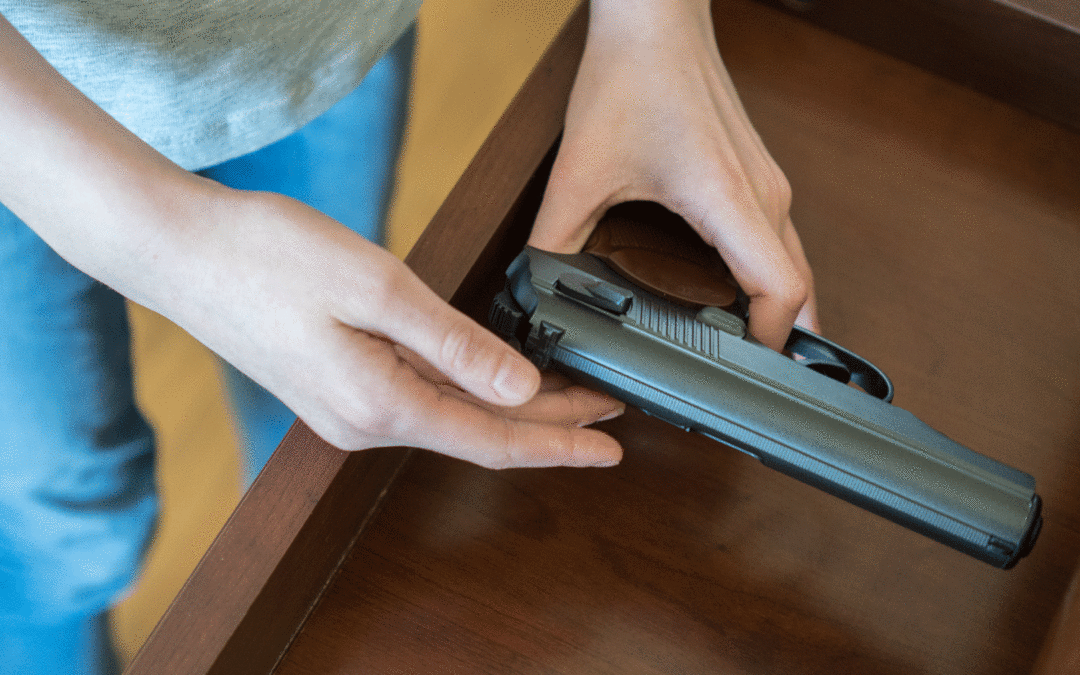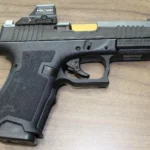There are often news stories about a child finding a firearm and either shooting themselves or another child. This covers some of the issues in Tennessee involving civil liability for negligent storage of firearms.
Over 100 years ago, a Tennessee court held it was “settled law” that a parent may be liable who permits a child of youth and inexperience to have access to a deadly weapon. Liability will depend on all the facts and the question of negligence is for the jury. Smith v. Salvaggio, 4 Tenn. Civ. App. 727 (1914)
Gun owners may be civilly liable for the actions of others using their firearms. Stanley v. Joslin, 757 S.W.2d 328 (Tenn. App. 1987), held that homeowner may be liable if they leave a dangerous instrumentality where it is accessible to children. In that case, a .30-30 rifle and ammunition was left in a gun rack. Her only action was to admonish the 14 year old boy not to touch the rifle.
Liability is not automatic. In Fly v. Cannon, 813 S.W.2d 458 (Tenn. App. 1984), summary judgment was granted for the grandmother who purchased a .44 Magnum revolver for her grandson to go hunting, when he was sixteen years old. Two years later, the grandson, killed a cousin who he mistook for a burglar. Under the facts of that case, the court found the gift of the revolver years earlier and no information that the grandson might act irresponsibly with his firearms, any negligence by the grandmother could not be the proximate cause of the accident.
In a related case, involving the dealers who sold the ammunition to the grandson, the Tennessee Court of Appeals held the proximate cause of the incident was the action of the grandson in firing the gun, not the dealers’ sale of handgun ammunition to a person under 21 years old. Fly v. Cannon, 836 S.W.2d 570 (Tenn. App. 1992). See also Rains v. Bend of the River, 124 S.W.3d 580 (Tenn. App. 2003), holding the sale of handgun cartridges to an 18 year old was not the proximate cause of his suicide.
Child Access Prevention Laws
Both federal and state laws limit possession of handguns by persons under age 18. Both have exceptions for activities, such as Tenn. Code Ann. § 39-17-1319, which allows possession of a handgun by a juvenile to hunt, in a hunter safety class, or for target shooting, with parental permission.
While Tennessee does not have a safe storage law, there is Tenn. Code Ann. § 39-17-1320, which prohibits a person from “intentionally, knowingly or recklessly” providing a handgun to a person under age 18. “Reckless” is defined in § 39-11-302(c) as “when the person is aware of but consciously disregards a substantial and unjustifiable risk that the circumstances exist or the result will occur.”
A duty is created by Tenn. Code Ann. § 39-17-1312 on any person who knows that a minor is in illegal possession of a firearm on premises of a school, playground or park, and fails to prevent the possession or report it to school or law enforcement officials.
A qualified immunity is created by 18 U.S. Code § 922(z) for a handgun owner who uses a “secure gun storage or safety device” (trigger lock, safe or lock box), for damages resulting from unauthorized use of the handgun.
Stolen Firearm Used in Crime
Case law in Tennessee does not support a cause of action when a stolen firearm is used in a crime. See Louria v. Brummett, 916 S.W.2d 929 (Tenn. App. 1995), holding that the resulting crime from the alleged negligence in storing guns was not foreseeable. Not that facts and circumstances make all the difference in outcome.
Conclusion
Situations involving storing firearms seldom involve lawyers, until after a tragedy has occurred. An application of common sense, realization that children are naturally curious and not deterred by warnings, are necessary to keep firearms out of their hands. Whether the gun owner wins or loses in court makes no difference to those involved in such accidental deaths and injuries.
If you would like more information on this subject, you may contact James Wagner at (865) 546-9321.
RELATED POSTS:

James E. Wagner concentrates his practice in areas such as personal injury litigation, workers’ compensation, toxic tort litigation, products liability, firearms law, probate, estate planning and insurance. His varied legal experience helps him analyze and resolve issues in all areas of practice for his clients. He has been privileged to represent many of the same clients over my entire career and handles each case with a view toward a long-term relationship. James provides his clients with reliable, dependable service.





